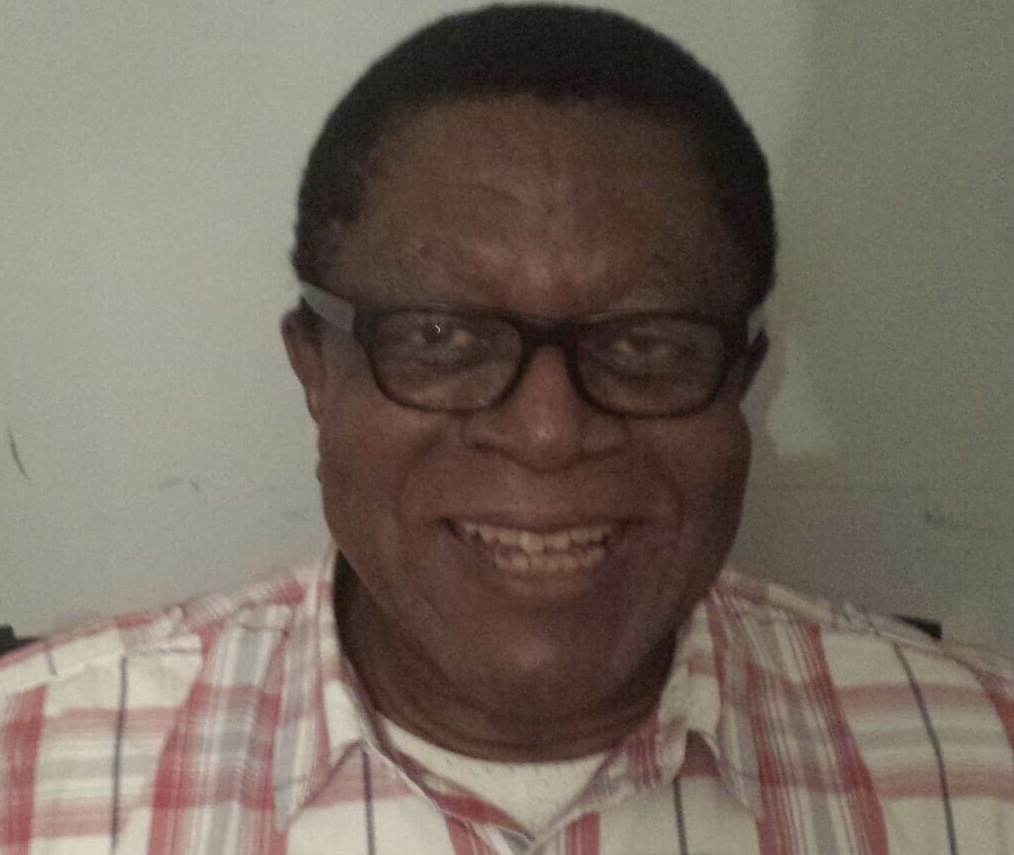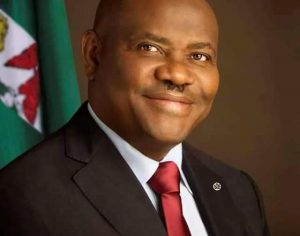Nigeria’s problem is beyond competent leadership — By Albert Okwudiba Nnoli
8 min read
Okwudiba Nnoli
Nigerians tend to think that the President of their country can fix the problems of the country if he/she is competent, energetic, well meaning and morally upright. This view is greatly mistaken. It is the class not the individual that rules. Mrs. Buhari discovered this the hard way when her husband became President. It is for the same reason that we often hear of some mysterious mafia, cabal or clique that is making the policy decisions.
The truth is that there’s no one cabal or mafia or clique. Instead, there’s one class that is calling the shots. It’s the petty bourgeoisie. The logic is simple. Government is an intricate network of people who, together, run the country. The President cannot be everywhere at one and the same time. He must rely on people in the Executive Council, the Civil Service, parastatals, legislature, judiciary, private sector and educational institutions etc. He may supervise the making of policy decisions at the highest level of this network. But these decisions are as good as their implementation by these other persons. All of them belong to the same class, the petty bourgeoisie because they play a similar role in production. They service those who create and innovate products. The farmers, workers and fisherfolk are never part of this network of people.
The people in the network are also held together by values inherent in their role in production, and others arising from intraclass political interactions. The former include lack of discipline, and lack of respect for laws. The latter include the belief that the quickest way to wealth is through participation in politics and government. Another is the manipulation of primordial factors, such as ethnicity, religion, gender, age and region, for their selfish material benefit. It has never been the manipulation of the roles of classes in production.
However, the petty bourgeoisie is not a homogeneous entity in terms of material interests in production, or in the characters and personalities of its members, their moral and ethical standards, their degree of patriotism, empathy towards the disadvantaged, propensity to use violence to achieve selfish interests, and their understanding of the problems facing the country and how to solve them.
Thus, in their intraclass politics they form groups and political parties that are different. But their politics converges on their burning desire to occupy political office, and/or to remain relevant in politics.
The objective of this politics is to live in the kind of comfort they see in the life of rich people of the Western countries whom they emulate as their model of good life. Hence, they cannot open their mouth without referencing one incident or situation in America.
As is clear the petty bourgeois live in a fantasy of a bubble of their own relative to the vast majority of their compatriots, the workers, farmers and fisherfolk. These constitute the underprivileged classes of the country. They are the kind of classes that Frantz Fanon referred to as the wretched of the earth. In the Master Plan for Abuja the petty bourgeois insisted that since these poor people were out of mind they should also be out of sight in their abodes, far away from the center of the city, the glittering showcase of the arrival of the petty bourgeois to Western affluence and comfort. In veritable Bantustans of apartheid-style housing system.
Life of these marginalized poor classes is incredibly horrible. I know because I lived it as a young person. Yes I remember my roots. Some of you who grew up like me may have forgotten. Six of us sleeping on a three foot six inches wide bed with three heads at one end and the other three at the other end, and being utterly brutalized every night by bedbugs. Part of every Saturday was spent trying to knock them out of our all-wooden bed and killing them. The more we thought we had killed them the more they brutalized us the whole week long.
Yes I remember. Going around the city of Enugu naked until Standard Six. To ensure that our school uniform was not replaced when due we had to carry them to school in our oddly shaped metal boxes and put them on there before entering the school , and remove them again when school was over.
Yes I remember. That over eighty percent of my school mates at St. Brigid’s Primary School Enugu did not make it to secondary school due to financial incapacity. Not to talk of those who could not make it to primary school for the same reason. And it was in the Primary school that I experienced my greatest academic competition. Only the Government Secondary Schools offered scholarships. And there were only three of them then in the Eastern Region namely : Government College Umuahia , Government Secondary School Owerri, and Government Secondary School Afikpo. In the year I took the requisite entrance examination to Government Secondary School Owerri only two of us in Enugu and it’s wider environment passed the exams to these three schools. This automatically meant that the rest would not proceed to secondary school unless their extended families made unbelievable sacrifices. Even the entire village sometimes had to come in. Others had to do their O’Level and even Advanced Level certificates courses by themselves at home or by correspondence courses. Even those who got admission to Government Secondary Schools were not guaranteed scholarships. Only about ten percent would be awarded entrance scholarships. If I had not got one, I don’t know what my fate would have been today.
Yes I remember. My first shoe was bought for me to attend the entrance admission interview in faraway Owerri. I went all alone, the first time I traveled out of Enugu and its environs, except when I went with my mother to the village. I was left alone to brave the shinanigans of the motor park touts at Enugu, Onitsha and Owerri. Worst of all I arrived at Owerri covered with dust from the bad roads, while the sandy roads of Owerri played an awful game of “catch and carry” with the bicycle taxi, it’s rider and his passenger.
Yes I remember. Years and years of toil deprivation and hardships but of joy, fun and camaraderie as well. The daily routine was to wake up very early in the morning, fire the coal stove and take it outside the house for the smoke to clear before bringing it back. Boil water for all to bathe with, warm the leftover fufu and soup. Take a bath, eat and set off to school naked and barefooted. After school we played some football with expired tennis balls obtained as “ball boys” at the European Club. On return from school I proceeded immediately to Ogbete market where mom sold dried fish, and returned with whatever she had bought for the house. When these contained raw cassava, I peeled the cassava, soaked it in water and proceeded to “lesson”. On return I would prepare the evening meal as per mom’s instructions. It was anathema for a mom to cook while there was a child around who was of cooking age. Then came dinner which contained no meat or fish. Any such protein had to wait until the end of the soup to be shared equally among us all.
Weekends we devoted to sports of all kind, football (soccer), athletics, lawn tennis, table tennis. It started immediately after the offensive against the bedbugs on Saturday. We had so much fun that we pitied our rich counterparts who did not have the permission to play with us. It’s not surprising that practically all the famous regional and national sportsmen and sportswomen came out of our communities all over the country.
No, let’s not forget. That in spite of these hardships, we still carried ourselves with honor, dignity and integrity. Begging was anathema and severely punished on the spot by any elder who noticed it. Everyone was regarded as a member of a larger extended family irrespective of ethnicity and religion.
No, let’s not forget. That the nationalist leaders told us that our hardships were caused by the colonialists. So we joined the struggle to get rid of them. At Enugu even as primary school pupils we armed ourselves with catapults and stones to deal with anyone who stood in the way of the anti-colonial struggle. Those that Zik called lackeys of imperialism. No one recruited us or paid us or invited us to any event. We were there because we wanted to support our heroes : Zik, Aminu Kano, Mbonu Ojike (the boycott king), Adegoke Adelabu, Anthony Enahoro and Umoru Altine the first Mayor of Enugu. Awolowo would have been included but he had called us “ half naked savages “, epithets that the colonists would not use again at the time. Often we sneaked out of class to attend their events or to attack their opponents.
No, let’s not forget. We had hoped that their efforts on our behalf would not be in vain. But they were. The colonialists were driven out but the petty bourgeois who took over power treated us no better. Except for some progress in education especially in the Western Region not much changed. Our ally in the anti-colonial struggle had abandoned us. For them the struggle was over but not so for us. The impediment to our progress was now regrettably our own people, the petty bourgeois. They went about behaving like the colonialists. This petty bourgeois perfidy was unpardonable. Therefore, our progress depended on removing them from power in another struggle for self determination.
No, let’s not forget. That in the struggle against the colonialists we formed political groups and parties separate from those of the government. We must do the same now. Organize our political groups and parties separate from those of the petty bourgeois that are running the Government. Our political parties will then compete with theirs in the electoral arena. And may the best side win.
No, let’s not forget. That the only resource we have for this struggle is organization, self organization. That was all we had against the colonialists. Yet we prevailed. But this time it must be an organization of a different type.
So, let all those whose roots are the poor and disadvantaged classes rally round these classes to create these organizations and wage this struggle. No, let’s not forget. That we are nothing without our roots. Our history, personality, character and values are intricately woven with them. Roots need to be watered and nourished with valuable nutrients. Else they will die, and the rest of the plant will inevitably follow suit. Our people say that “Nwatakili chezoo omenani be nnaya, ife ona eme agbayaghali “, meaning “ if a child forgets his/her roots he/she loses his/her way”.
Yes, I remember
No, let’s not forget
For on our roots we stand.!!!!
No good will come out of supporting any of the petty bourgeois political parties.
◦




